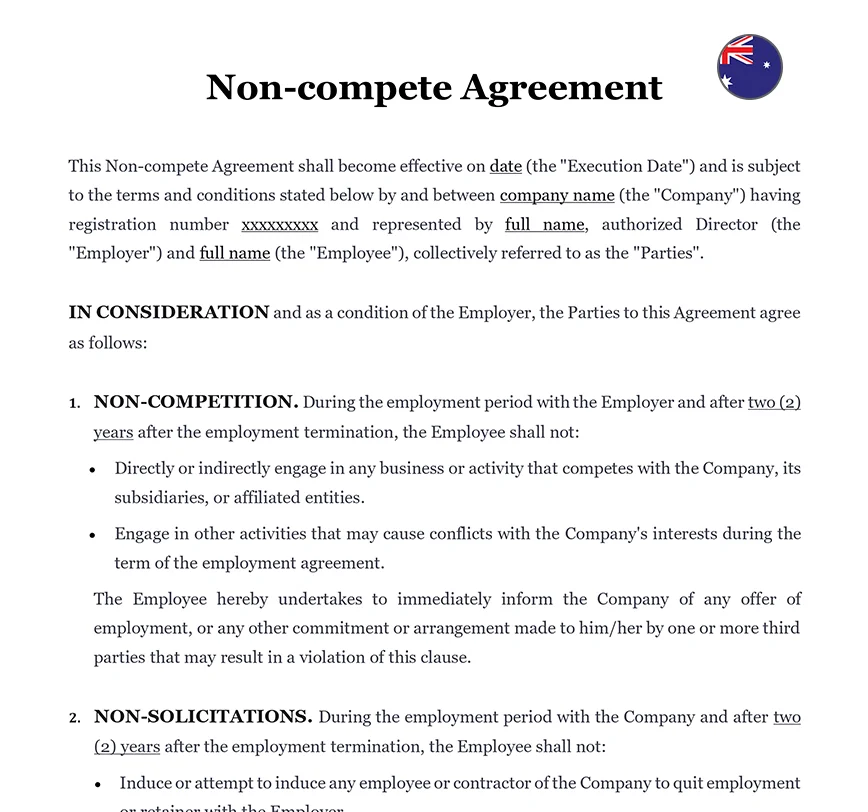Why Non-Compete Agreements Are Vital
A Non-Compete Agreement is a powerful tool for protecting your business from potential threats posed by former employees. As businesses in Australia face increased competition, ensuring that employees cannot take your valuable skills and secrets to a competitor is crucial. Similar to an Employee Confidentiality Agreement.
What is a Non-Compete Agreement?
An Employee Non-Compete Agreement is a legal contract between an employer and an employee, wherein the employee agrees not to enter into or start a similar profession or trade in competition against the employer. This agreement usually comes into play when:
1. Employees Leave the Company: To prevent them from joining competitors or starting a rival business.
2. Access to Sensitive Information: When employees have had access to trade secrets or critical business data.
The agreement is just as essential as a Service Agreement when ensuring that all parties understand their obligations and boundaries
When to Implement a Non-Compete Agreement
Businesses should consider implementing Non-Compete Agreements in the following scenarios:
1. High-Level Employees: When dealing with executives or key employees who have a deep understanding of the company’s strategies and operations.
2. Specialized Roles: For employees in specialized positions where their skills are critical and could be easily transferred to a competitor.
3. Contract Renewals: When renewing contracts or promoting employees to roles with more significant responsibilities.
Key Elements of a Non-Compete Agreement
A well-drafted Non-Compete Agreement should include the following elements:
1. Scope of the Agreement: Clearly define the industries, locations, and roles that the non-compete covers.
2. Duration: Specify the period during which the non-compete is enforceable, balancing business needs with legal limitations.
3. Geographic Limitations: Set reasonable geographic boundaries within which the employee cannot compete.
4. Consideration: Offer some form of consideration, such as continued employment or additional compensation, to make the agreement enforceable.
Legal Enforceability of Non-Compete Agreements in Australia
The enforceability of Non-Compete Agreements in Australia can be challenging, as courts often scrutinize these agreements to ensure they are not overly restrictive. Key factors influencing enforceability include:
| ➤ Reasonableness: The agreement must be reasonable in scope, duration, and geographic extent. |
| ➤ Legitimate Business Interest: The employer must prove that the non-compete is necessary to protect a legitimate business interest. |
| ➤ Balance of Power: Courts will consider whether the agreement unfairly limits the employee's ability to earn a living. |











